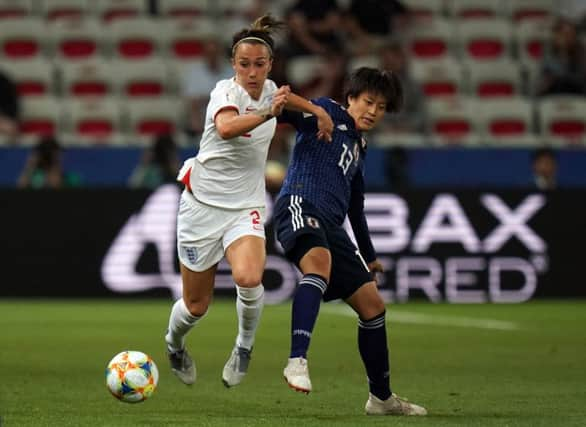Women’s World Cup hits right notes to draw comparisons with Italia 90 - Anthony Clavane


As preparation for a session at this week’s Knowing The Score conference at Leeds Beckett University, I had the pleasure of watching music videos featuring the great operatic tenor and the British rapper.
Not together, I might add. Although that would have been a fantasy collaboration to rival the classic 1977 duet between David Bowie and Bing Crosby.
Advertisement
Hide AdAdvertisement
Hide AdJust as the late Italian’s extraordinary soaring, swooping voice will forever be connected, in my mind, with the 1990 men’s World Cup, so the South London hip-hop star’s reimagined version of Remember The Name will now always be associated with the current women’s World Cup.
Banks’ song at first brings to mind New Order’s World In Motion, which was the soundtrack to the Three Lions’ heroic exploits in Italia 90. This is not just because John Barnes performed a famous rap; both songs are about expressing your individuality.
“I thought, this is a great opportunity to really empower people,” explained Banks. “Music, when combined with sport, is an incredibly powerful thing. Music can impact our mood, our feelings, and even our opinions on certain topics.”
However, whilst watching a trailer for Ron Howard’s documentary about Pavarotti, I was reminded that it wasn’t World In Motion which impacted the national mood back in 1990 – it was Nessun Dorma.
Advertisement
Hide AdAdvertisement
Hide AdIt is impossible to hear Puccini’s aria without remembering that moment of heroic failure – especially Paul Gascoigne’s uncontrollable sob. The culture snobs and the opera purists looked down on it, but it was the moment that high and popular culture collided.
It helped to kick-start the football boom. The game had been a pariah sport in the 1980s. The “two world wars and one World Cup” mentality emerged during an era when the English tabloids, and parts of the fan base, used the team as a rallying point for a xenophobic and sometimes racist strain of nationalism.
At the same time Margaret Thatcher demonised working-class football fans, like the miners, as the “enemy within”, and announced the introduction of compulsory identity cards. To Thatcher, both the coal and football industries were now lame ducks, symptoms of an embittered, run-down country, resigned to failure.
Nessun Dorma expressed the glory of the beautiful game’s revival. It felt like we were on the cusp of a new order, both on and off the pitch. A brave new world was about to be established, one that would transfigure the country’s footballing landscape. Like New Labour, the game ditched its cloth cap image and embraced a new world of glamour, glitz and celebrity – and also, unfortunately, a new culture of soaring TV fees, billionaire foreign owners and flashy, pampered prima donnas.
Advertisement
Hide AdAdvertisement
Hide AdAfter the disillusionment felt towards the golden generation of Beckham, Ferdinand, Lampard et al, when successive humiliations brought us down to earth with a thump, Banks has got the blood pumping again.
“Women in sport are just like women in rap,” she noted. “In a male-dominated field, just fighting for equality.
“When the BBC first asked me to write the song, I didn’t really see the similarities, but then in a short amount of time I realised it is very close to home. Reading the women’s stories, their grind and graft, really inspired me.”
In a similar way, Pavarotti’s powerful rendition of Nessun Dorma realised his long-held dream of bringing opera into the mainstream.
Advertisement
Hide AdAdvertisement
Hide AdAs the great historian Eric Hobsbawm argued, “the imagined community of millions seems more real as a team of eleven named people”.
In the past fifty years, at various sporting events, there have been moments of transformation, both positive and negative. At each of those moments, football has told a story about Englishness, provided an insight into the national psychology, held up a mirror to society.
In these polarising times, an inspiring tournament can bring the nation together to experience all the joys and pain of being an England supporter. But it has needed, as always, a memorable anthem.